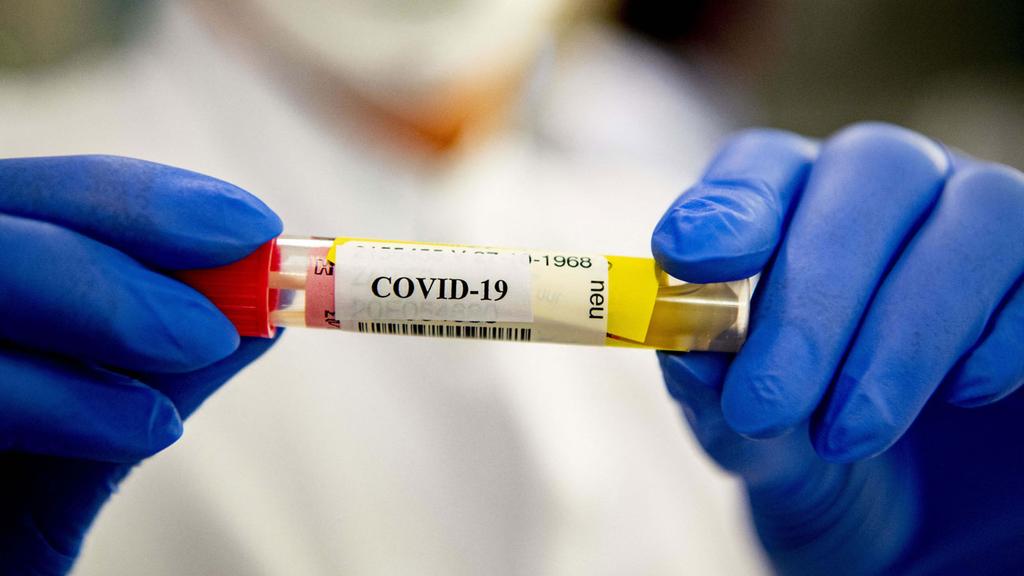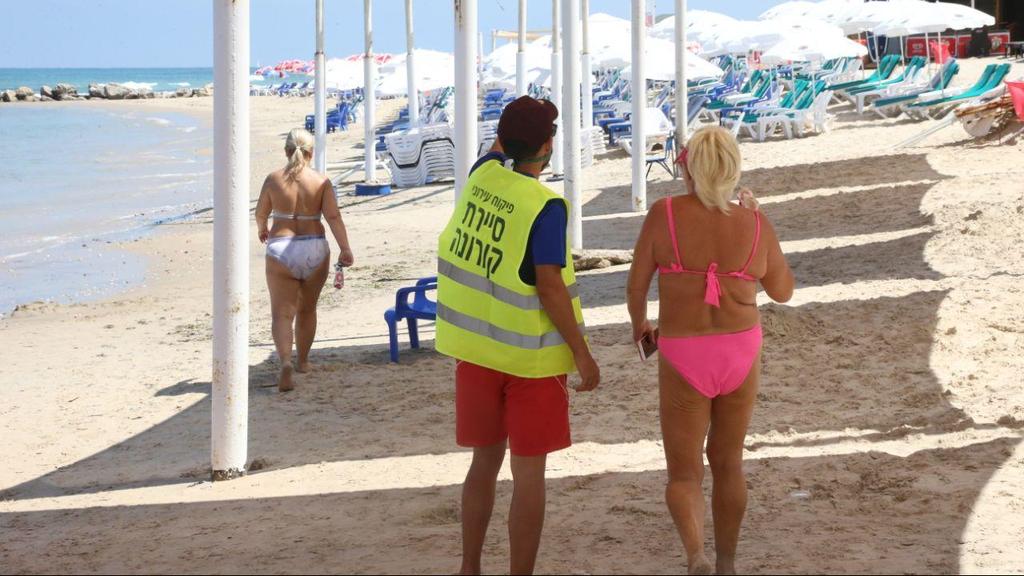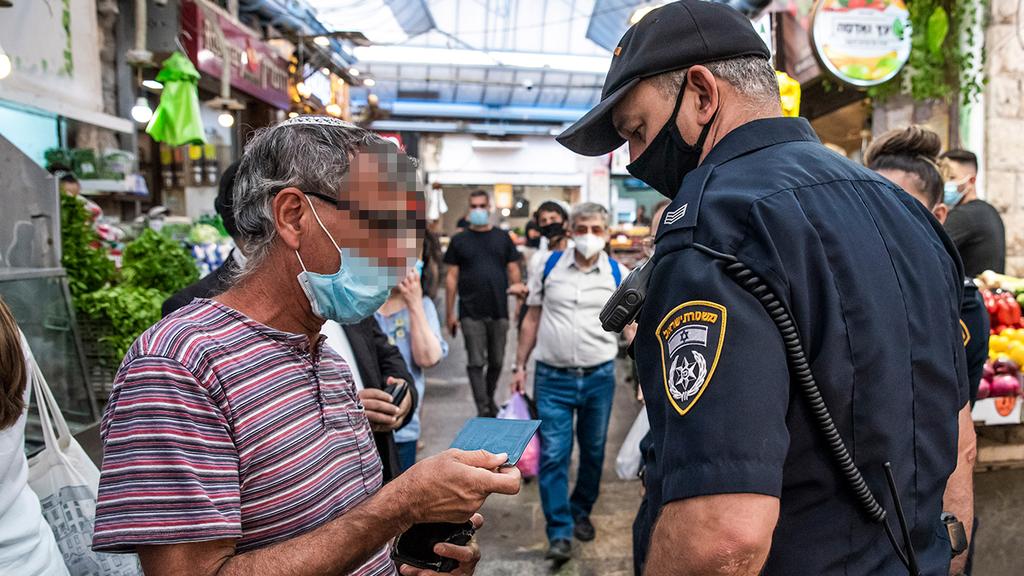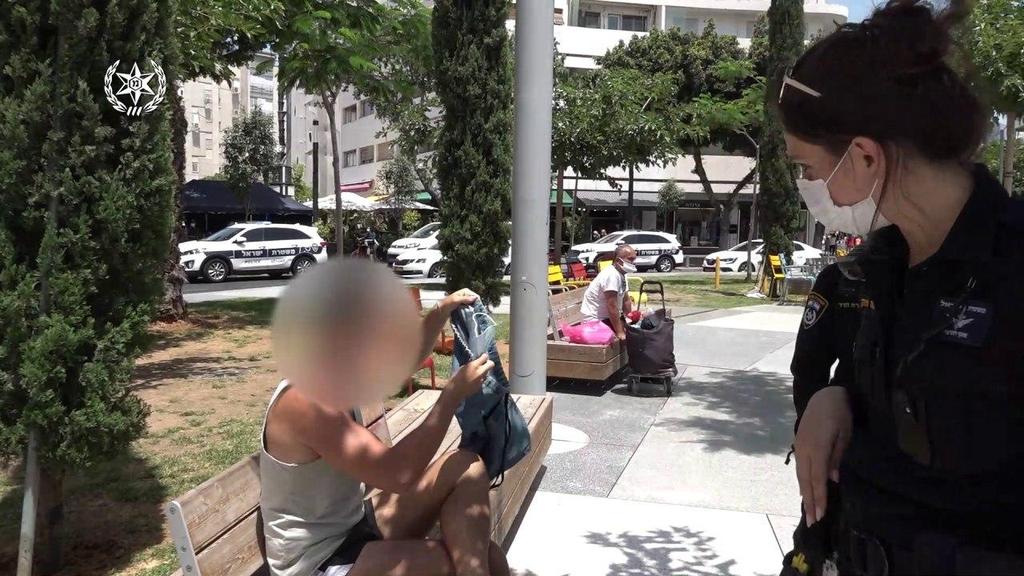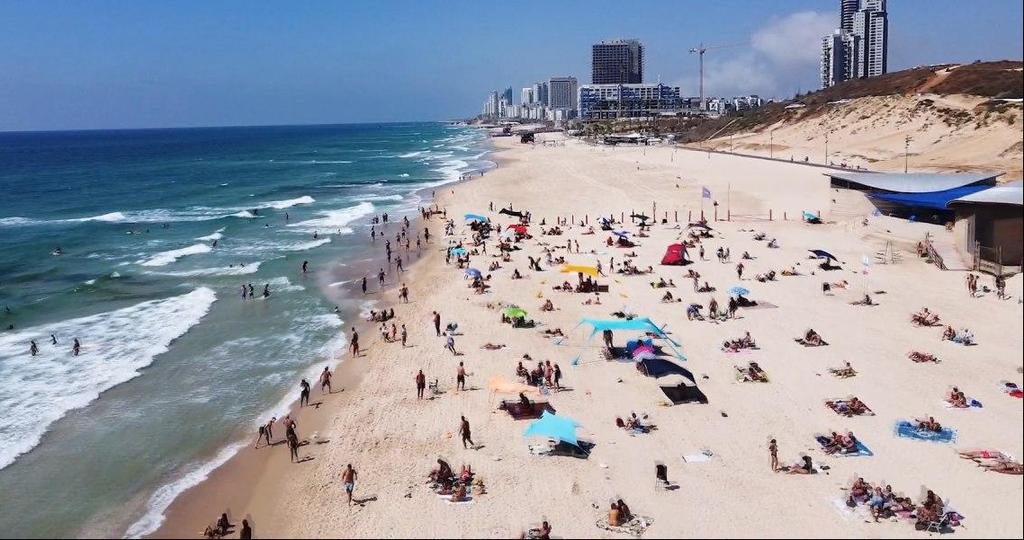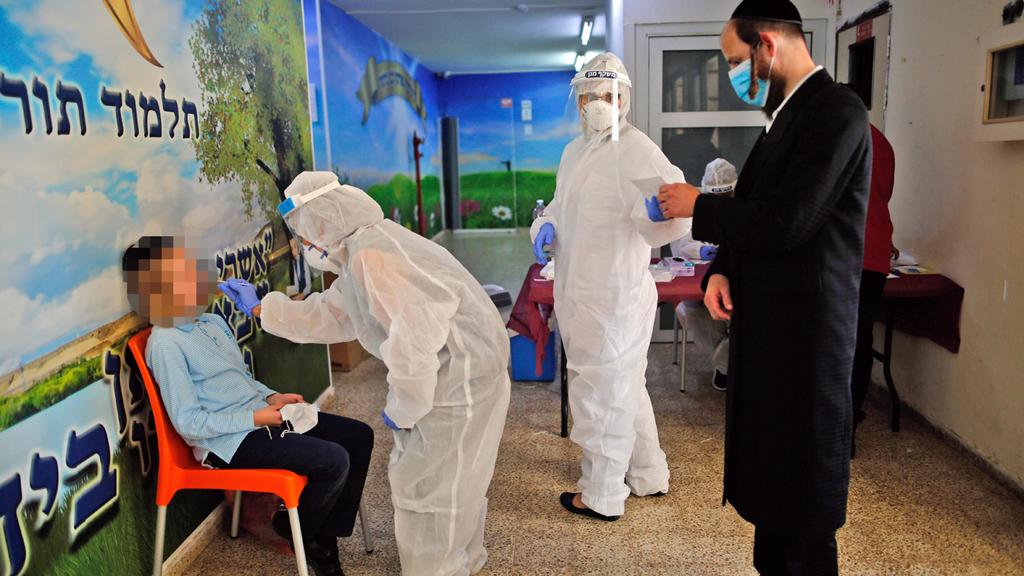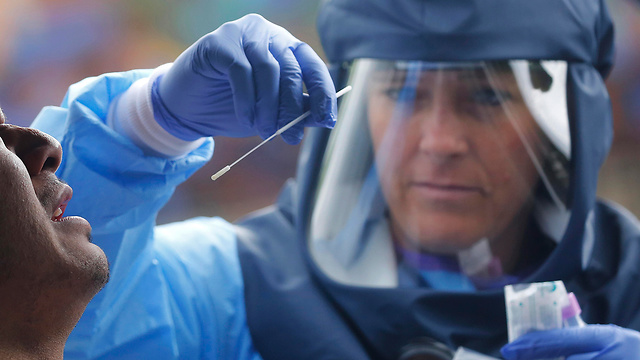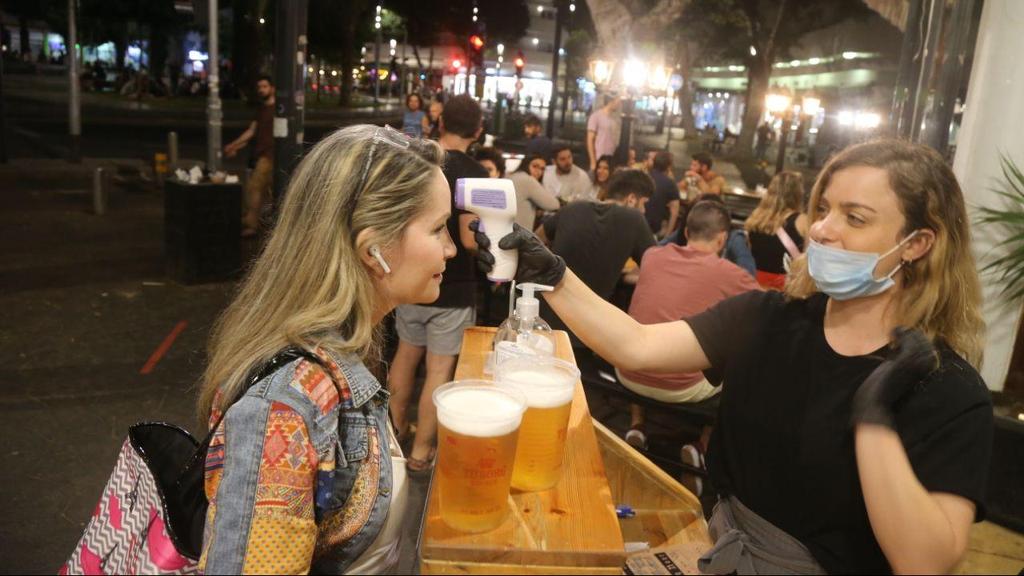Since its discovery in the Chinese city of Wuhan, COVID-19, more commonly known as coronavirus, has changed the world as we know it and greatly impacted the way we live our lives.
The virus has consistently startled the medical community in the way it infects the organism, how it invades the body's cells, the manner in which it harms the organs and how its symptoms are displayed.
With new information - as well as misinformation - about the pathogen released on a daily basis, Ynet has combined a list of the most important things to know about this epidemic.
1. Despite earlier assumptions that sun's UV rays are lethal to coronavirus, the summer heat does not appear to slow the spread of the pathogen and it's safe to assume the pandemic will not be over by the end of this summer.
More than 10 million infections have already been reporded around the world, including in countries with very hot climates - such as Israel.
2. Over time, it has been proven that masks are the most effective way to prevent the virus from spreading from carrier to carrier, along with social distancing and maintaining basic hygiene such as washing hands.
While the N95 masks - used by medical professionals - were initially believed have been the “golden standard” for preventing the spread, surgical masks have proven to be just as effective, if not more.
3. At the beginning of the epidemic, health officials believed the optimal distance to maintain from one another was 2 meters. Further tests, however, proved the virus - attached to the particles of saliva - could travel distances far greater than the recommended 1.60-1.80 meters.
For example, it has been found that during rapid walking, the virus could travel up to five meters from one carrier to another. During running, it can travel as far as 10 meters. Scientists have therefore recommended that social distancing be maintained even during sporting activities.
4. Although the elderly and patients with pre-existing conditions are most likely to develop complications from the pathogen, the virus is spread mostly by health young people.
This is according to data collected not only in Israel, but around the world as well, and stems from young people's lack of adherence to health orders.
10 View gallery
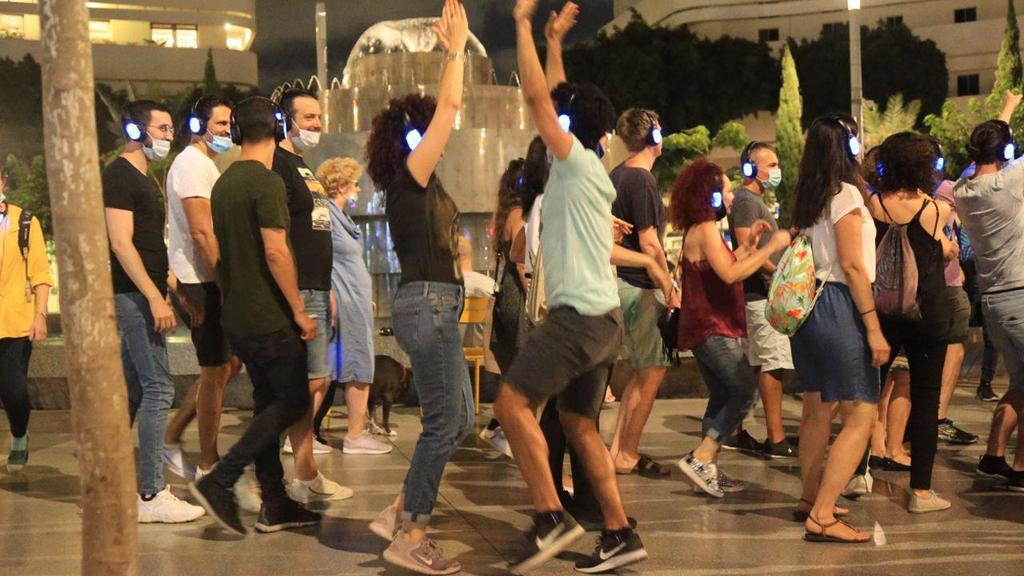

A party in Tel Aviv in the middle of Tel Aviv amid coronavirus
(Photo: Motti Kimchi )
5. The coronavirus invades the body mainly through the mouth or nose and from there, continues to spread until it reaches the lungs. New evidence suggests, however, the virus is likely to infect the inside lining of the eyes as well.
Virus residues were also found in wastewater, indicating it might infect via direct contact with secretions. Therefore, people should be careful when touching their face with dirty hands, avoid biting nails, disinfect hands after any contact in public areas, and most importantly - always wear a mask outside.
6. The American Centers for Disease Control and Prevention (CDC) published a series of recommendations meant to reduce the risk of contracting coronavirus. Recommendations include adherence to social distancing rules, disinfection of hands after visiting public areas, and avoidance of large crowds.
The CDC added that using elevators should be avoided as much as possible. Hands should be disinfected after using ATM machines and gas stations. It is also best to avoid handshakes and even elbow bumps since it promotes physical contact. A face mask should be worn whenever possible and especially when going to a public toilet. Hands should be disinfected before and after a meal.
7. The virus keeps spreading not only In Israel, but in Europe, North and South America. It has been found that in many countries the best way to force the public to adhere to the health guidelines is, unfortunately, by threatening people with large fines and even arrests.
In Israel the fine for not wearing a mask in a public space has been increased from NIS200 to NIS500. The fine for a business owner who allows clients to enter without a mask or does not adhere to other guidelines, currently stands at NIS5,000 along with a risk of immediate closure of the business.
8. It is assumed the winter will bring a high demand for influenza vaccines, due to the public's fear of contracting both the coronavirus and the common cold. This raises concerns health care systems worldwide could collapse over the shortage of resources and staff.
If there will not be enough vaccine to go around, doctors recommend vaccinating children and the elderly as soon as influenza vaccines become available.
9. The way to prevent the spread of the virus is to isolate those who were in close contact with a confirmed carrier. You must enter a 14-day isolation if you are:
- Returning from overseas (businesspeople and air crews), even if the tests results have returned negative.
- Exposed to a confirmed patient even if the tests came back negative.
- Students and teaching staff in an educational institution attended by a verified even if tests results retuned negative.
- Those suffering from coronavirus symptoms (fever, cough, sore throat, weakness and muscle pain), until the test results.
- Those who share a household with someone in isolation are not required to isolate themselves, unless the test of the suspected patient returns positive.
10 View gallery
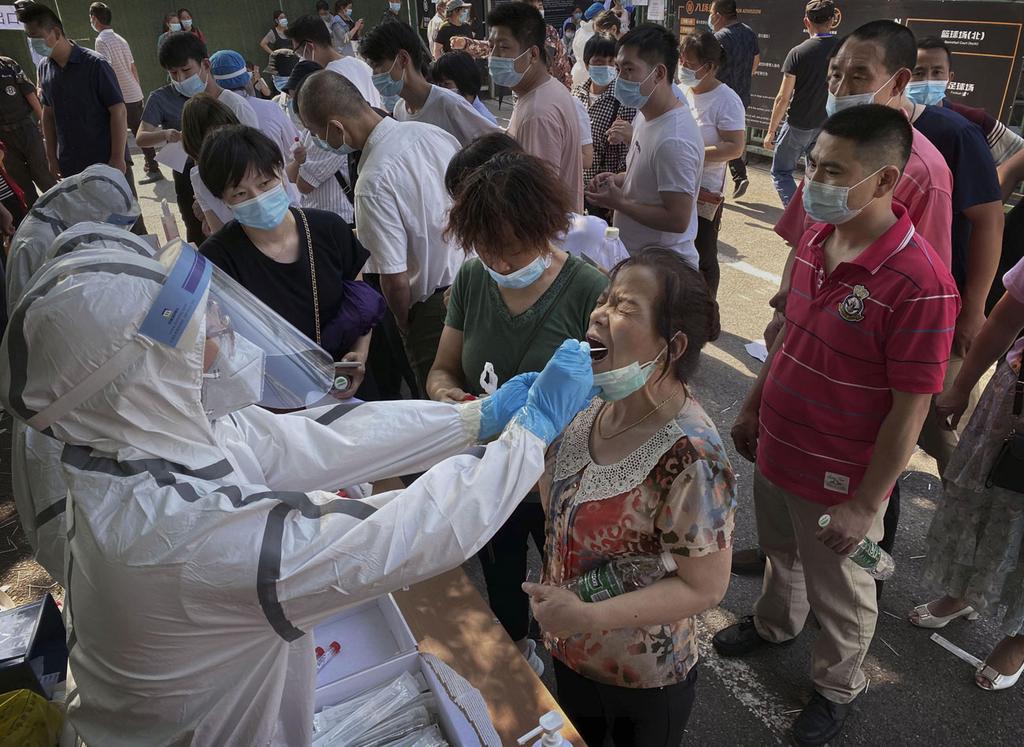

People waiting to get tested in Beijing as the fear of a second coronavirus wave rises
(Photo: Getty Images)
10. At the beginning of the coronavirus crisis, the Health Ministry refused to carry out extensive testing, but with the arrival of new Health Minister Yuli Edelstein, testing was significantly expanded, with the minister even encouraging Israelis to get tested.
In the case of exposure to a verified patient, the ministry will automatically transfer your name to Magen David Adom, who will schedule an appointment for a test. If you did not receive an appointment within the day, contact your primary physician at your respective HMO, who will re-submit your request for a test.
If you suffer from the symptoms associated with coronavirus, contact your doctor who will schedule a test for you. Important to remember that once a coronavirus test order has been submitted in your name, you automatically enter the Health Ministry and police's "isolation list," and therefore required to stay in quarantine until the results are known.
11. Dozens of companies are working on the vaccine for the coronavirus, with four of them currently in the final stages and are preparing to begin manufacturing this September.
Meanwhile, the World Health Organization Director-General, Dr. Tedros Adhanom, said he believes COVID-19 vaccines would not be available until next year.
12. Health systems worldwide are very concerned many at-risk people refusing treatment for chronic diseases out of fear of contracting coronavirus.
Never delay or refuse medical treatments, consult with your doctor online or via telephone services if you're having doubts, and in case of emergency call MDA hotline at 101.
13. The WHO has expressed said they are worried for female coronavirus patients who stopped breastfeeding for fear of transmitting the virus to their newborns.
All tests showed that coronavirus is not transmitted via breast milk and infection can be prevented by adhering to strict hygiene regulations and wearing a mask.
14. Since the beginning of the epidemic there were those who tried to minimize the coronavirus threat and called the epidemic nothing more than a "little flu". So, the thing is, it's not the flu.
The coronavirus epidemic has already crossed 10 million infections, over half a million people have already died of the virus and it has proven to be much more dangerous than the flu.
15. There are many who still believe in the power of spices, vitamins and supplements to protect against viral diseases. There is no proof however, that vitamins, including Vitamin C or any other supplement, protect contracting coronavirus.
16. Recently, security guards at entrances to malls and businesses have begun measuring body temperature with an infrared thermometer scanning a person's head instead of the forehead.
This form of checking a body temperature is incorrect. The thermometer was created and tested with only one way to check body temperatures, and that is by placing it on the forehead. Any other way gives incorrect result.
17. Animals do not transmit the disease to humans, despite instances where animals, such as cats and tigers, were found to have been infected with the virus.
However, the WHO recommend always washing hands with soap and water after every contact with animals, mainly to prevent infections caused by common fecal bacteria, such as E. coli and salmonella, which are equally dangerous and are known to pass from animals to humans.
18. Antibiotics are ineffective against coronavirus, since they affect only bacteria, while COVID-19 is a virus. At the beginning of the pandemic, some believed the antibiotic called "Azenil" might prevent the infection when given together with the anti-malaria drug "Chloroquine".
Over time however, both of these drugs, which have serious side effects, have been proven ineffective against COVID-19. There is still no drug that prevents coronavirus infection at this stage.
19. Many of those who infect others show no symptoms themselves and are difficult to identify as carriers. These are called asymptomatic patients, meaning they do not suffer from the symptoms of the disease nor will they.
There are also pre-symptomatic - those who will develop symptoms at the later stage of the disease. These two groups are the main concern of health authorities, as they are often the ones spreading the disease, even without knowing.
20. Most causes of coronavirus-related deaths are a result of weak immune systems. The medical world came to this conclusion a few months ago, when a process named "cytokine storm" was discovered, during which the body's immune system goes awry and causes an inflammatory response which flares out of control.
This discovery led to new treatments for the diseases in its earliest stages when the virus invades the body.


